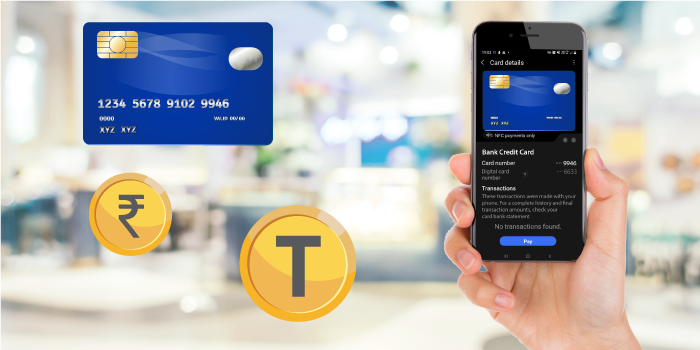The global pandemic has increased digitisation and brought many new users under the ambit of Digital India.
The global pandemic has increased digitisation and brought many new users under the ambit of Digital India. Transactions made via National Electronic Funds Transfer (NEFT), National Electronic Toll Collection (NETC), and the Bharat Bill Payment System (BBPS) have witnessed a significant surge over the previous year. Similarly, debit/credit-based transactions continue to persist. With increase in non-cash mode of payments, there has also been a surge in online frauds. This is where technologies like Tokenisation come into the picture.
What is tokenisation?
Tokenisation is the process through which the 16-digit card number is replaced with a unique token while processing a digital transaction. As the token is completely random, it negates the risk to security breach or fraud at any step of the digital chain. Tokens are usually a blend of alphanumeric codes that are not related to any sensitive information such as customer’s name, address, account number and of course card number.
For instance, if a customer initiates a transaction at a PoS terminal/in-app/e-commerce portal, the card number is converted into a token, securing all the confidential details at every step of the transaction. To complete the transaction, ONLY this token is passed through various stakeholders/networks, thereby protecting bank details. In case a fraudster becomes privy to this information, he/she will not be able to reverse engineer the token for frauds.
While tokenisation has become the buzz word in recent times, it has been around for a while in India. In fact, UPI, QR-based payments and tap-and-pay transactions on PoS machines have already been using this technology.
Benefits of tokenization
Prevents data breaches & strengthens brand image
Tokenisation adds an extra layer of security to card-based transactions and prevents data breaches. Data breaches are expensive for they cost the business its brand image and monetary loss. A solution like tokenisation can help businesses build a strong and safe digital infrastructure for its customers. As no card details are saved, card-based frauds are negated to a large extent.
Increased customer confidence
Tokenisation fosters trust within customers as they perceive the bank/merchant as a responsible entity. Many users, especially in cash-intensive countries like India, are apprehensive about entering their card data on e-commerce websites. Tokenisation gives them the much-needed confidence in using digital payment options.
Cost-effective
Tokenisation reduces the business’s investments in payment security as it can bring down the rate of frauds. Issuers can also witness decline in card replacements as tokenisation can mitigate card-based frauds.
From a compliance standpoint, tokenisation reduces the steps involved in complying with the Payment Card Industry Data Security Standard (PCI DSS) regulations as the token saved does not reveal any viable information to the fraudster.
Improved convenience for e-commerce transactions
Tokenisation adds to the convenience of online purchases by enabling safe & secure one-click checkouts. After a token is created, the consumer need not manually enter his/her sensitive information while making an online transaction. Increased security reduced card declining rates and combined with hassle-free checkouts elevates consumer experience.
According to the recent RBI guidelines, starting January 1, 2022, merchants and e-commerce firms will not be allowed to save sensitive card details of consumers. These merchants will have to mandate the adoption of card-on-file tokenisation as an alternative to storing of card data. Tokenisation can prove to be game-changing technology; it can make digital payments stronger, more secure & convenient for all its stakeholders – i.e., Banks, card networks, merchants and customers.


